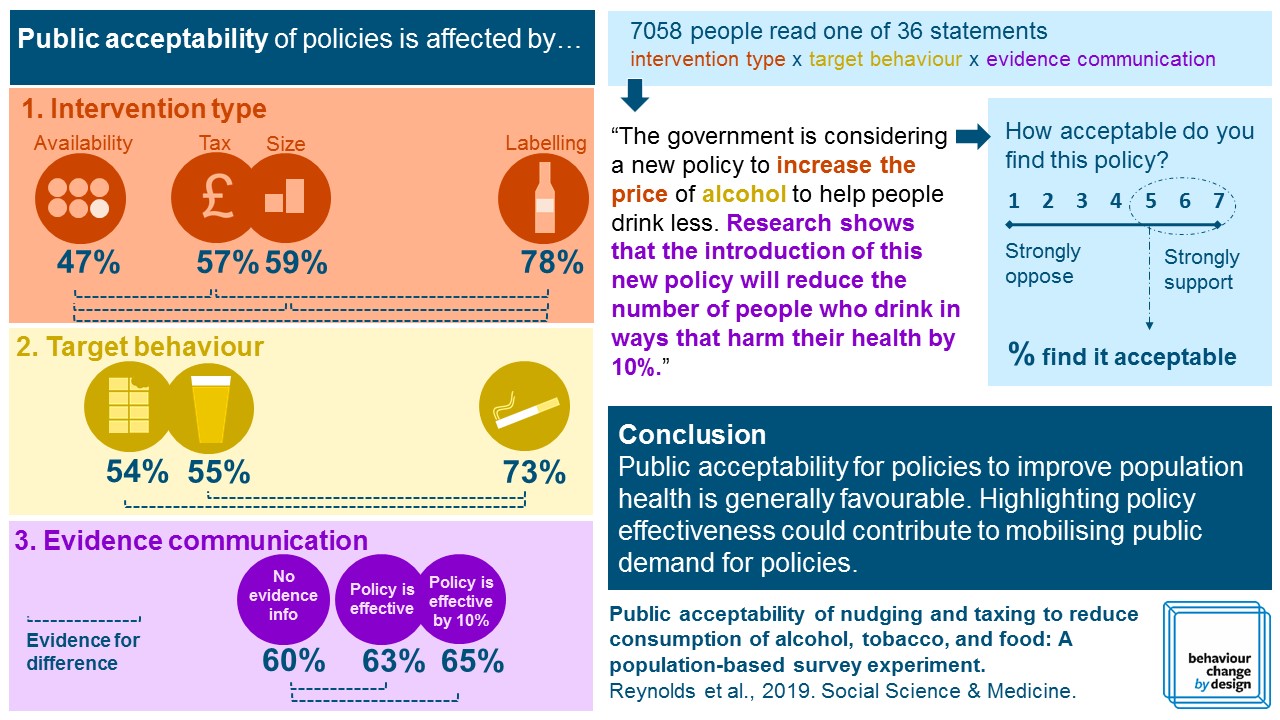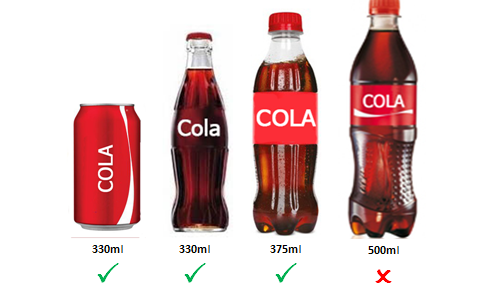Smoking, and excessive consumption of alcohol and unhealthy snacks are leading causes of years of life lost globally.  Promising interventions include nudging – changes to the physical environment to “nudge” people toward healthier behaviours – and taxation. Implementing such interventions often requires government intervention, which is made more likely by public support. We examined support for these interventions in a survey with an experimental design involving 7058 English adults.
Promising interventions include nudging – changes to the physical environment to “nudge” people toward healthier behaviours – and taxation. Implementing such interventions often requires government intervention, which is made more likely by public support. We examined support for these interventions in a survey with an experimental design involving 7058 English adults.
Overall 60% supported these policies with support varying by policy and behaviour. Putting graphic warning labels on products received strongest support (from 78%), followed by reducing product size (59%), then taxing the product (57%), and finally reducing the availability of the product (47%).
To read the findings of the study in full, click here.
Reynolds, J. P., Archer, S., Pilling, M., Kenny, M., Hollands, G. J., & Marteau, T. M. (2019). Public acceptability of nudging and taxing to reduce consumption of alcohol, tobacco, and food: A population-based survey experiment.

 In a new paper investigating public acceptability for policy interventions to improve health (published in Social Science and Medicine 4th October, 2018), researchers tested ways to communicate quantitative evidence of the effectiveness of a hypothetical tax on confectionery to help tackle childhood obesity.
In a new paper investigating public acceptability for policy interventions to improve health (published in Social Science and Medicine 4th October, 2018), researchers tested ways to communicate quantitative evidence of the effectiveness of a hypothetical tax on confectionery to help tackle childhood obesity.